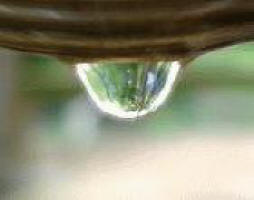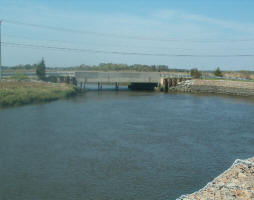 Screening method for Water data Information in support of the implementation of the Water Framework Directive
Screening method for Water data Information in support of the implementation of the Water Framework Directive
- The monitoring requirements for successfully implementing the WFD will
directly depend upon available measurement techniques of demonstrated
quality, which will be able to deliver reliable data at an affordable cost.
Besides the necessary "classical" laboratory analyses, screening
methodologies will play a key role in the WFD implementation, in particular
for the detection of accidental pollution
or the control of water bodies at risk. The WFD will represent a powerful
management tool only if monitoring data are of reliable and comparable
quality. The costs of wrong decisions based on erroneous data could be
tremendous, which justifies that Community efforts are made to ensure that
data are produced according to a proper quality assurance regime.
| Project number | 502492 | ||
|---|---|---|---|
| Subject(s) | ANALYSIS AND TESTS , POLICY-WATER POLICY AND WATER MANAGEMENT , PREVENTION AND NUISANCES POLLUTION , TOOL TERMS , WATER QUALITY | ||
| Acronym | SWIFT-WFD | ||
| Geographical coverage | France, United Kingdom, Italy, Germany, Spain, Netherlands, Sweden, Hungary, Belgium, Portugal, Bulgaria, Austria, Belgium, Czech Republic, Poland, Italy, Cyprus, Germany, Romania, Latvia | ||
| Budget (in €) | 6735725 | ||
| Programme | INCO MED (FP6) | ||
| Web site | http://www.swift-wfd.com | ||
| Objectives |
In the light of the above, the objectives of SWIFT-WFD should focus on the
production of quality control tools for validation purposes of screening
methods, an inventory of existing screening test (chemical and biological)
methods through laboratory-based (tank experiments) and/or field
interlaboratory studies based on a selection of reference aquatic ecosystems at European scale, and with classical laboratory based analyses to validate their results and demonstrate their equivalence for parameters regulated by th WFD. In parallel, the project should consider the development of new "low-cost", innovative, screening techniques (both for chemical and biological parameters) and their validation using the same approach (interlaboratory testing and comparison with laboratory-based methods). In addition, exchange of knowledge, transfer of technologies and training related to water monitoring will represent a key issue for ensuring the comparability of data produced by screening methods. |
||
| Period | [01/01/2004 - 01/01/2007] | ||
 you are not logged in
you are not logged in





